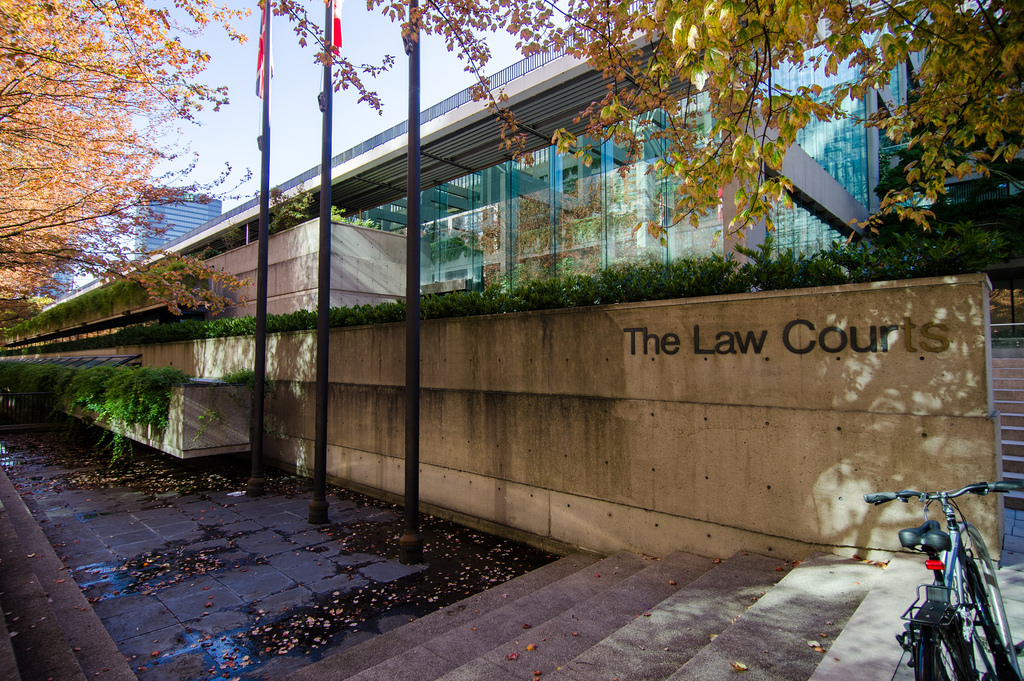The Potential Chilling Effect the New Evidence Amendment Act May Have on #MeToo
Vancouver lawyer David O’Neill discusses potential fallout from the new Evidence Amendment Act, including challenges faced by people coming forward with #MeToo stories. At Spraggs Law, David’s practice includes personal injury, residential tenancy, and strata law. Dave has experience navigating the ins and outs of administrative bodies such as residential tenancy branch and civil resolutions tribunal.

On July 8, 2020, the NDP government passed a law that not only impacts those injured in car accidents but could also affect anyone seeking compensation for personal injury. The impact of this law is severe and far-reaching, particularly on the #MeToo movement and harassment claims.
On August 10, 2020, the Evidence Amendment Act section 1 of the Act, came into force in British Columbia. The purported purpose of the Evidence Amendment Act given by the Attorney General, David Eby, was to drive down the costs motor vehicle accident litigation by restricting the number of expert reports that a party can rely upon at trial to three as well limiting the amount of disbursements that a Plaintiff can recover. (the Attorney General indicated on several occasions that disbursements would being limited to 5% of the damages award.)
These changes were proposed as cost-savings measures under the backdrop of the “financial dumpster fire” at ICBC, and the restrictions on the injured party to prove their case and limit recovery were justified given ICBC’s precarious financial situation.
While the above theory of providing costs savings is disputed, (Minister Eby has stated that there is no forecasting for any cost savings to ICBC), the justification of the Evidence Amendment Act was that the changes were necessary for ICBC’s financial survival.
The Switch
However, at the last possible moment, on Third Reading of the Legislation, the legislation was modified so that the term Vehicle Injury Proceeding was changed to Personal Injury Proceeding. This expanded the scope of the legislation to cover any civil proceeding in the Supreme Court that includes a claim for personal injury damages.
These sections of the Evidence Amendment Act are not yet in force, but if and when they are it would result in the most comprehensive tort reform in this Province’s history. Given this fact, what would be the fallout of this change?
The purported reason for implementing these changes on non-ICBC personal injury claims have disappeared as the primary purpose for the legislation was to save ICBC from their dire financial straits. Essentially these changes would benefit corporate interests including private insurance companies that have to defend against torts as wide ranging as medical malpractice, sexual assault, class-action lawsuits, or slip and fall injuries.
In exchange for eliminating the rights of ICBC plaintiffs, the NDP has offered the dubious trade-off of a no-fault systems or, as they call it, an “enhanced care system”. This creates a WorkSafe BC system for Motor Vehicle Accident Claims.
Unfortunately, a WorkSafe BC type system does not exist for medical malpractice victims, sexual assault survivors, or class-action lawsuit plaintiffs. Once these sections are brought into force the government would remove these rights without a trade-off in the form of enhanced benefits for injured parties.
Chilling Effect
One of the main features of the Canadian Legal System is that costs follow the event. In a nutshell this means that the losing party in a lawsuit must pay a portion of the legal costs of the winning party. Disbursements are part of the costs.
In many American jurisdictions, regardless of who wins or losses, each party bears their own costs.
The reason that costs following the event is that it promotes settlement between the parties and discourages frivolous litigation. The changes that are proposed by the NDP government would fundamentally shift personal injury actions to an American Style approach on costs.
In Persampieri v. Hobbs, 2019 ONSC 368, Justice Sanderson, emphasizing the importance of why it is important to preserve principle that a successful party is entitled to costs stating to not do so would:
- discourage plaintiffs from pursuing legitimate but modest claims; and
- incentivize insurers to resist settling such cases to discourage plaintiffs from proceeding, which would seriously jeopardize overall access to justice.
By limiting the amount that successful litigants can recover, the NDP has fundamentally shifted power from individuals who wish to pursue a remedy in the courts to those with more money and resources. Not only does this impact the ability of individuals to seek justice in specific cases, but it will impact the use of tort law as an instrument of social changes and driver of accountability.
Impact on #MeToo and Harassment Claims
In no other realm will the chilling effect be more profound than in the #MeToo movement. Sexual harassment and assault survivors already have seemingly insurmountable challenges in pursing justice. Not only must they face their abuser in court, speak publicly about and relive their trauma and open up their medical and psychological history to strangers, now they must face the prospect that, even if they are successful in court, they may actually be in a worse financial position.
One of the purposes of tort law is to deter wrongful conduct, and tort law has an important role in the #MeToo movement. The prospect of lawsuits for harassment and assault, should compel employers, governments, athletic organizations, schools, and so on to ensure that people are not victimized on their watch. This new law passed by the NDP puts this at risk and shifts power away from survivors.
Need Help With a Legal Issue? Contact Our Team at Spraggs Law
Do you need help with a legal issue? Spraggs Law can help. Give us a call at 604-359-1627 for a free consultation to discuss how we can offer personalized assistance based on your circumstances.
Please note: This article does not contain legal advice. If you would like advice on your specific situation, please contact Spraggs Law.
